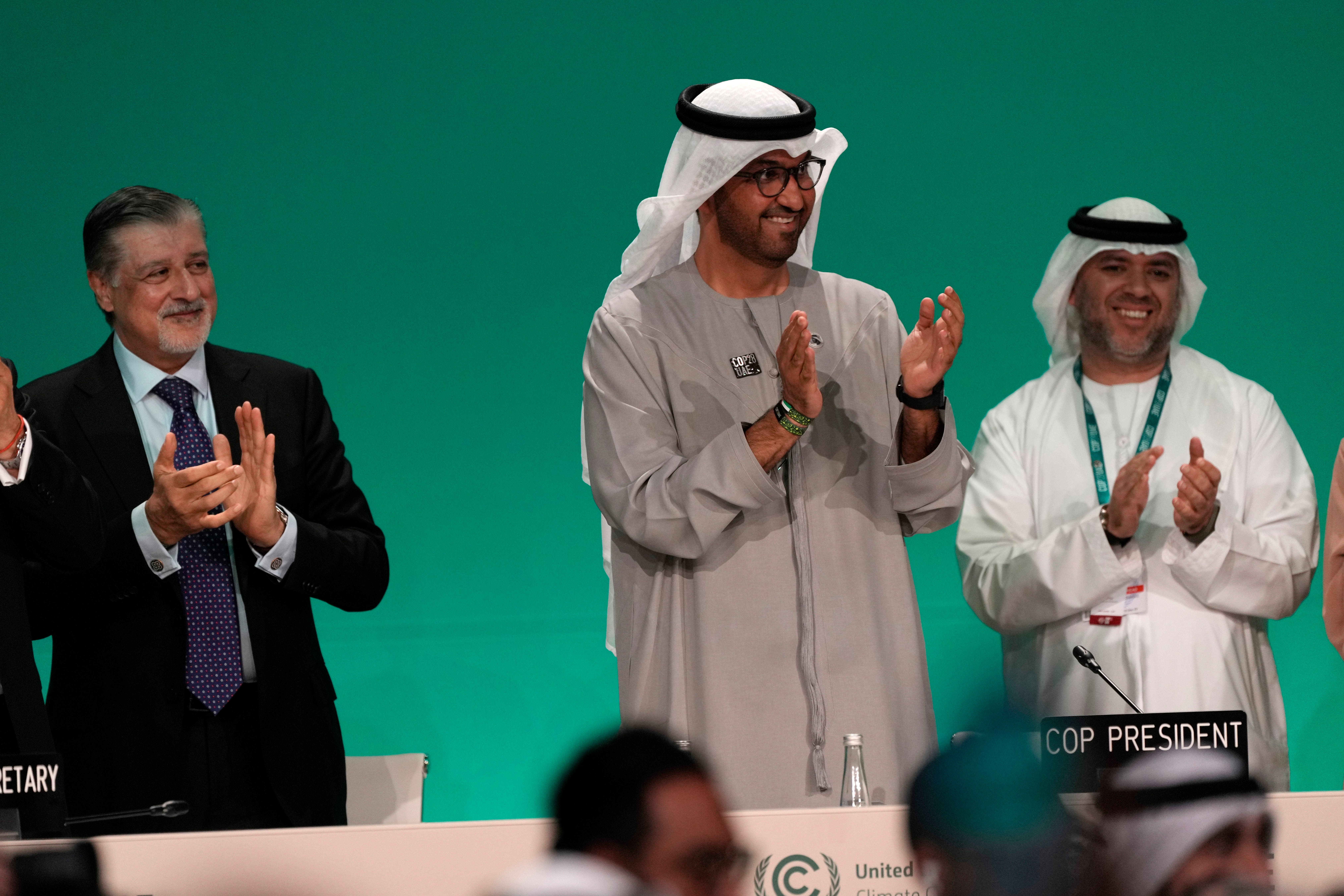
Hopping on a kerosene-guzzling plane to an oil-producing nation to talk about how the world needs to cut down on fossil fuels has an irony not lost on me. As I found on my visit to the latest COP 28 in the United Arab Emirates, the climate conversation is full of contradictions. But despite the obvious trouble with the conference, I found the summit was full of useful conversations about the future of travel in a warming world. After all, people are still going to take holidays, and if it can be done more sustainably while helping those on the sharp end of climate change, that can only be a good thing.
When I arrived at COP it felt like a sustainability Disneyland in the desert: a bit like arranging deckchairs on the Titanic. The Epcot Centre-like dome had pretty lights, astroturf-carpeted floors, and jaunty slogans shouting at us to “Unite. Act. Deliver”. Sure, it sounds like satire — especially since one imagines much that purpose-washing branding is currently winging its way to landfill. But what Dubai’s ExpoCity underscored, with its flashy video installations, food stalls and Instagram-friendly eco-activations, is that climate awareness is now part of the mainstream, and industry leaders from around the world travelled to the UAE take the topic seriously.
The main conversation at COP was between countries about phasing out their fossil fuel use, creating a much debated draft climate agreement. With all the focus on geopolitics and fossil, the tourism industry can get neglected. But it shouldn't: it employs one in 10 people. And on the fringes of the biggest climate conference the world has ever seen were platforms for the smaller, developing countries most affected by increasing world temperatures, rising sea levels and extreme weather. We need the low-profile Marshall Islands on the world stage, pleading for oil and gas to be reduced in exchange for their survival.

How can tourism help, you might ask? After all, planes aren't great for the ozone layer, and climate-conscious travellers should always feel guilt about flying. (That being said, planes aren't the biggest polluter in the world: they create under 3% of all human-generated greenhouse gases.) Given people are still going to fly, but should do it less, it's important that when they do it helps local people in the places where they are going: giving us ‘ROE’, as I’m calling it — return on emissions. If they do go somewhere remote, they should make sure to put money in the local economy, meaning that tourism can also help these small island nations crying out for funds that can help them tackle the problems they are facing. Effective sustainable tourism helps transfer funds from those that have cash to those that need it — without hand-outs.
Our panel discussion, on the enjoyably-named Extreme Hangout stage, was focused on how luxury lodges are a financial lifeline for rural communities from Africa to Asia. Uyunkar Domingo Peas Nampichkai of the Amazon Sacred Headwaters Alliance explained the importance of supporting Indigenous peoples and biodiversity in remote rainforests through community-led nature-positive tourism. It’s just a shame Indigenous peoples at COP28 totalled just over 300 while fossil fuel lobbyists almost 2,500.
There were lots of ideas on show from around the world. Hotel corporation Iberostar demonstrated how their chain of beachfront hotels is protecting coastlines, saying that by aligning with Science Based Targets they’re on track to decarbonise by 85% by 2030. Good Hotel’s Marten Dresen spoke about floating hotels tackling social inequity. Choosing the right holiday — as advocated through The Standard’s Sustainable Travel hub — can mean pluses, not just minuses, in the complicated economics vs carbon equation.
Many were optimistic about what they'd seen. "COP28’s success is more than a milestone; it’s our collective lighthouse in the stormy seas of climate change,” Glenn Mandziuk of the Sustainable Hospitality Alliance told me. It may appear like a circus generating a lot of hot air (and goodness knows, our atmosphere can do without that), but hearing impassioned pleas first-hand from vulnerable communities was powerful, and I felt some hope. Hearing the voices of young people, activists, entrepreneurs, First Nation people and residents of little-known Oceanic islands on the frontlines, brought home the fact that it’s already a matter of life and death for many on our planet. Tourism can help to provide lifejackets.







